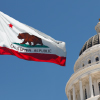Ninth Circuit Upholds LAUSD COVID-19 Vaccination Requirement for Employees During Pandemic

September 12, 2025
Number 39
Ninth Circuit Upholds LAUSD COVID-19 Vaccination Requirement for Employees During Pandemic
In Health Freedom Defense Fund, Inc. v. Alberto Carvalho, et al. (9th Cir. July 31, 2025), Case No. 22-55908, __ F.4th __ , the Ninth Circuit Court of Appeals determined that the Los Angeles Unified School District’s (LAUSD) now-rescinded COVID-19 vaccination requirement for employees did not violate constitutional law because it was rationally related to protecting the health and safety of the public. This case was heard “en banc,” meaning that all the Ninth Circuit judges heard the case, as opposed to the routine disposition by a three-judge panel. En banc review is rare and typically reserved for the most important cases.
LAUSD’s COVID-19 Employee Vaccination Policy
In August 2021, the Board of Education for LAUSD adopted a policy requiring all LAUSD employees—absent a religious or medical exemption—to obtain COVID-19 vaccinations. When LAUSD issued the policy, leading health experts had recommended that individuals obtain COVID-19 vaccinations and reported that such vaccinations were effective in preventing and spreading the disease. In November 2021, the Health Freedom Defense Fund, California Educators for Medical Freedom, and current and former LAUSD employees filed suit to prevent LAUSD from enforcing its employee vaccination policy, arguing that the policy violated the employees’ substantive due process and equal protection rights.
LAUSD has since rescinded the employee COVID-19 vaccination requirement, but the Ninth Circuit determined that this did not render the case moot because the court could still order reinstatement of the employees who remain terminated for non-compliance with the policy.
Ninth Circuit Analysis
In analyzing the legality of LAUSD’s employee vaccination requirement, the Ninth Circuit relied on a 1905 Supreme Court case, Jacobson v. Massachusetts (1905) 197 U.S. 11. The Jacobson case involved a challenge to a local government’s smallpox vaccine requirement, long before COVID-19. Jacobson held that municipalities could require vaccinations if the Board of Health determined it was necessary for public health or safety.
In Jacobson, the Supreme Court applied a rational basis review test, and determined that because the Board of Health could reasonably conclude that the smallpox vaccine would protect health and safety, the smallpox vaccine requirement survived rational basis review and was permissible. The Ninth Circuit applied the same analysis here, finding that LAUSD’s vaccine requirement survived rational basis review, as LAUSD could have reasonably concluded that COVID-19 vaccines would protect the health and safety of its employees and students.
The Ninth Circuit—again relying on Jacobson—also emphasized that it is not the role of the courts to determine whether a vaccine requirement would protect health and safety. The Supreme Court in Jacobson balanced individuals’ right of bodily integrity against the government’s right to regulate to protect the health and safety of its constituents. The Supreme Court held in Jacobson—and the Ninth Circuit agreed in Health Freedom Defense Fund—that the health and safety question was for the legislature or policy makers to decide, not a court or jury.
The LAUSD employees argued that Jacobson was limited to vaccines that prevent the spread of disease and provide immunity. The Ninth Circuit rejected this argument, emphasizing that, under Jacobson, scientific uncertainty is irrelevant. Therefore, allegations regarding the COVID-19 vaccine’s disputed or uncertain effectiveness or failure to provide complete immunity did not matter. The court ruled that the only question was whether LAUSD could have reasonably concluded that the vaccine would protect employees’ and students’ health and safety. In this case, the Ninth Circuit determined that this conclusion was “more than reasonable” for the COVID-19 vaccines, citing the leading CDC guidance and other scientific authority.
The Ninth Circuit also determined that there is no heightened standard of review based on more recent cases regarding the right to refuse medical care. The Ninth Circuit held that these cases do not overrule Jacobson or impact its analysis.
Takeaways
In the Health Freedom Defense Fund case, the Ninth Circuit confirmed the great deference given to local governments and school districts to determine vaccination policies for their employees. The Ninth Circuit’s opinion signals that so long as a government entity’s vaccination policy is reasonably related to promoting health and safety (especially if it follows leading health expert guidance), the policy will survive the low standard of rational basis review. Thus, in the Ninth Circuit at this time, school districts may impose and enforce vaccination policies for employees, even under threat of termination, if the policies are reasonably aimed at the goal of promoting health and safety. In a worldwide pandemic, such policies are especially likely to be upheld in the Ninth Circuit.
However, Jacobson and Health Freedom Defense Fund dealt only with vaccine policies. It is unclear as to how the Ninth Circuit’s analysis may impact other policies, such as mask mandates, during any future health crisis.
At this time, Plaintiffs have not yet petitioned for a writ of certiori to the Supreme Court. Given the significance of this case and the Court’s current composition, it is possible that this case will make its way to the Supreme Court. In this case, Plaintiffs have until the end of October 2025 to file their appeal.
If you have any questions about this Ninth Circuit decision, please contact the authors of this Client News Brief or an attorney at one of our eight offices located statewide. You can also subscribe to our podcast, follow us on Facebook and LinkedIn, or download our mobile app.
Number 39
Ninth Circuit Upholds LAUSD COVID-19 Vaccination Requirement for Employees During Pandemic
In Health Freedom Defense Fund, Inc. v. Alberto Carvalho, et al. (9th Cir. July 31, 2025), Case No. 22-55908, __ F.4th __ , the Ninth Circuit Court of Appeals determined that the Los Angeles Unified School District’s (LAUSD) now-rescinded COVID-19 vaccination requirement for employees did not violate constitutional law because it was rationally related to protecting the health and safety of the public. This case was heard “en banc,” meaning that all the Ninth Circuit judges heard the case, as opposed to the routine disposition by a three-judge panel. En banc review is rare and typically reserved for the most important cases.
LAUSD’s COVID-19 Employee Vaccination Policy
In August 2021, the Board of Education for LAUSD adopted a policy requiring all LAUSD employees—absent a religious or medical exemption—to obtain COVID-19 vaccinations. When LAUSD issued the policy, leading health experts had recommended that individuals obtain COVID-19 vaccinations and reported that such vaccinations were effective in preventing and spreading the disease. In November 2021, the Health Freedom Defense Fund, California Educators for Medical Freedom, and current and former LAUSD employees filed suit to prevent LAUSD from enforcing its employee vaccination policy, arguing that the policy violated the employees’ substantive due process and equal protection rights.
LAUSD has since rescinded the employee COVID-19 vaccination requirement, but the Ninth Circuit determined that this did not render the case moot because the court could still order reinstatement of the employees who remain terminated for non-compliance with the policy.
Ninth Circuit Analysis
In analyzing the legality of LAUSD’s employee vaccination requirement, the Ninth Circuit relied on a 1905 Supreme Court case, Jacobson v. Massachusetts (1905) 197 U.S. 11. The Jacobson case involved a challenge to a local government’s smallpox vaccine requirement, long before COVID-19. Jacobson held that municipalities could require vaccinations if the Board of Health determined it was necessary for public health or safety.
In Jacobson, the Supreme Court applied a rational basis review test, and determined that because the Board of Health could reasonably conclude that the smallpox vaccine would protect health and safety, the smallpox vaccine requirement survived rational basis review and was permissible. The Ninth Circuit applied the same analysis here, finding that LAUSD’s vaccine requirement survived rational basis review, as LAUSD could have reasonably concluded that COVID-19 vaccines would protect the health and safety of its employees and students.
The Ninth Circuit—again relying on Jacobson—also emphasized that it is not the role of the courts to determine whether a vaccine requirement would protect health and safety. The Supreme Court in Jacobson balanced individuals’ right of bodily integrity against the government’s right to regulate to protect the health and safety of its constituents. The Supreme Court held in Jacobson—and the Ninth Circuit agreed in Health Freedom Defense Fund—that the health and safety question was for the legislature or policy makers to decide, not a court or jury.
The LAUSD employees argued that Jacobson was limited to vaccines that prevent the spread of disease and provide immunity. The Ninth Circuit rejected this argument, emphasizing that, under Jacobson, scientific uncertainty is irrelevant. Therefore, allegations regarding the COVID-19 vaccine’s disputed or uncertain effectiveness or failure to provide complete immunity did not matter. The court ruled that the only question was whether LAUSD could have reasonably concluded that the vaccine would protect employees’ and students’ health and safety. In this case, the Ninth Circuit determined that this conclusion was “more than reasonable” for the COVID-19 vaccines, citing the leading CDC guidance and other scientific authority.
The Ninth Circuit also determined that there is no heightened standard of review based on more recent cases regarding the right to refuse medical care. The Ninth Circuit held that these cases do not overrule Jacobson or impact its analysis.
Takeaways
In the Health Freedom Defense Fund case, the Ninth Circuit confirmed the great deference given to local governments and school districts to determine vaccination policies for their employees. The Ninth Circuit’s opinion signals that so long as a government entity’s vaccination policy is reasonably related to promoting health and safety (especially if it follows leading health expert guidance), the policy will survive the low standard of rational basis review. Thus, in the Ninth Circuit at this time, school districts may impose and enforce vaccination policies for employees, even under threat of termination, if the policies are reasonably aimed at the goal of promoting health and safety. In a worldwide pandemic, such policies are especially likely to be upheld in the Ninth Circuit.
However, Jacobson and Health Freedom Defense Fund dealt only with vaccine policies. It is unclear as to how the Ninth Circuit’s analysis may impact other policies, such as mask mandates, during any future health crisis.
At this time, Plaintiffs have not yet petitioned for a writ of certiori to the Supreme Court. Given the significance of this case and the Court’s current composition, it is possible that this case will make its way to the Supreme Court. In this case, Plaintiffs have until the end of October 2025 to file their appeal.
If you have any questions about this Ninth Circuit decision, please contact the authors of this Client News Brief or an attorney at one of our eight offices located statewide. You can also subscribe to our podcast, follow us on Facebook and LinkedIn, or download our mobile app.
As the information contained herein is necessarily general, its application to a particular set of facts and circumstances may vary. For this reason, this News Brief does not constitute legal advice. We recommend that you consult with your counsel prior to acting on the information contained herein.






